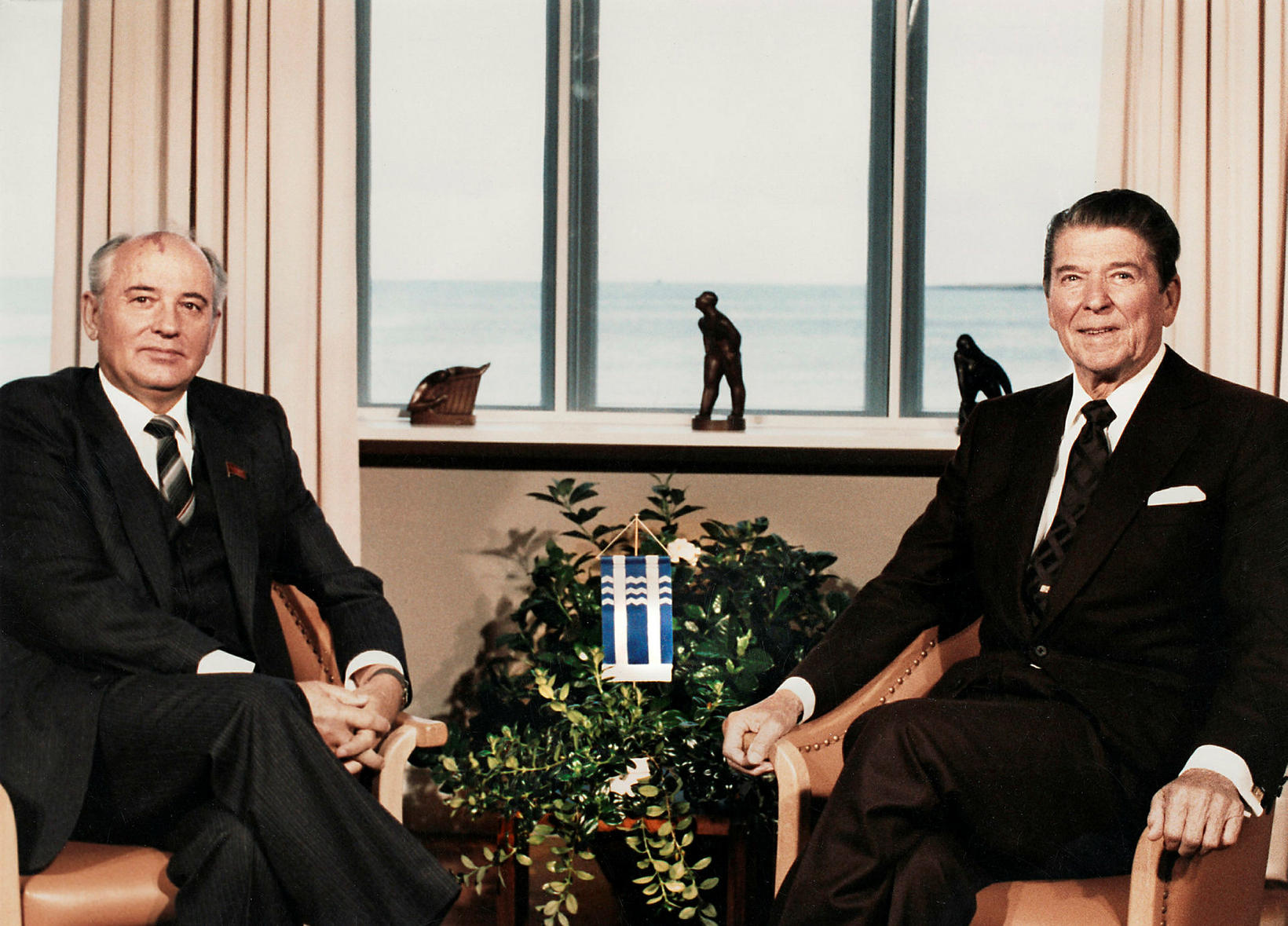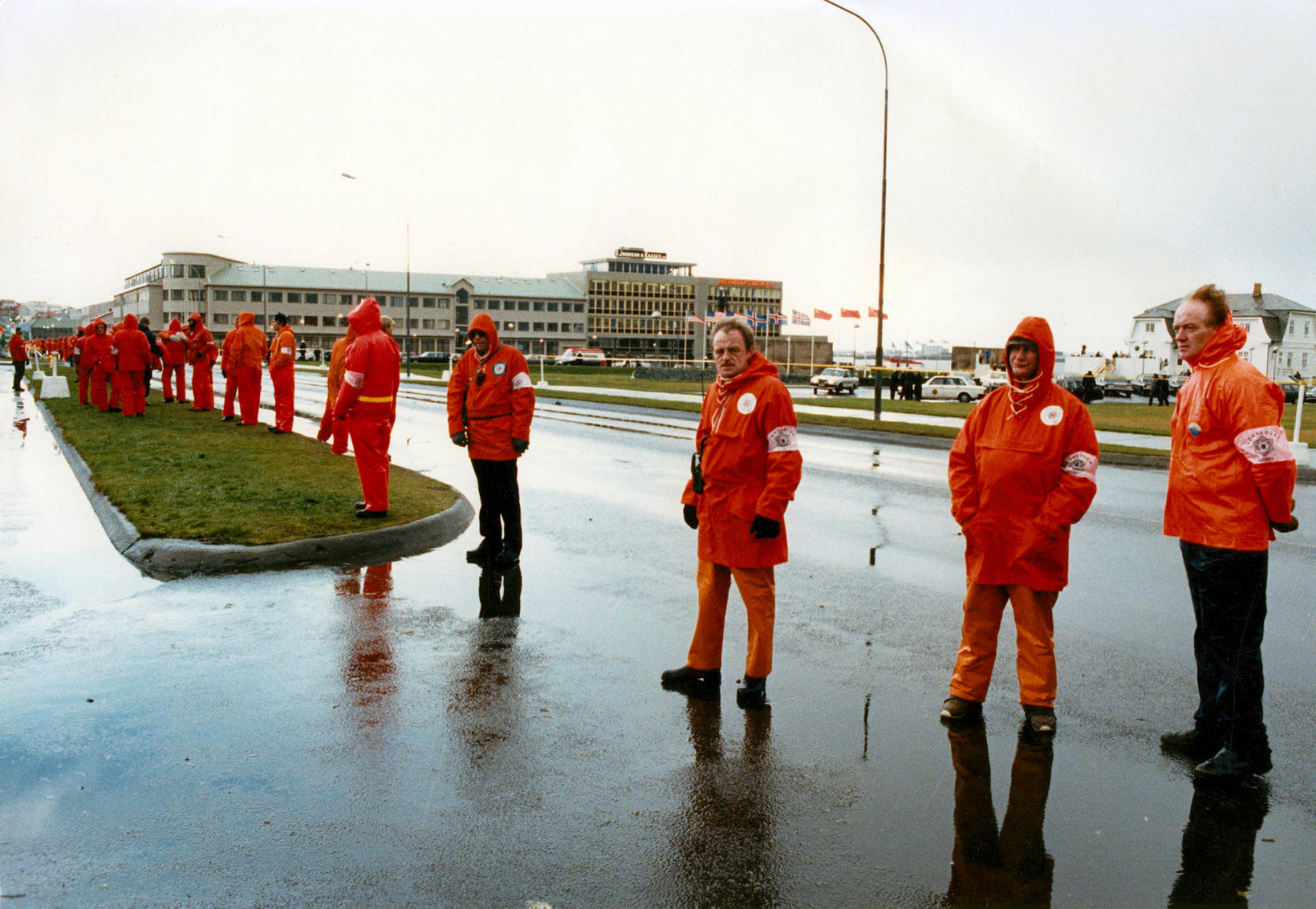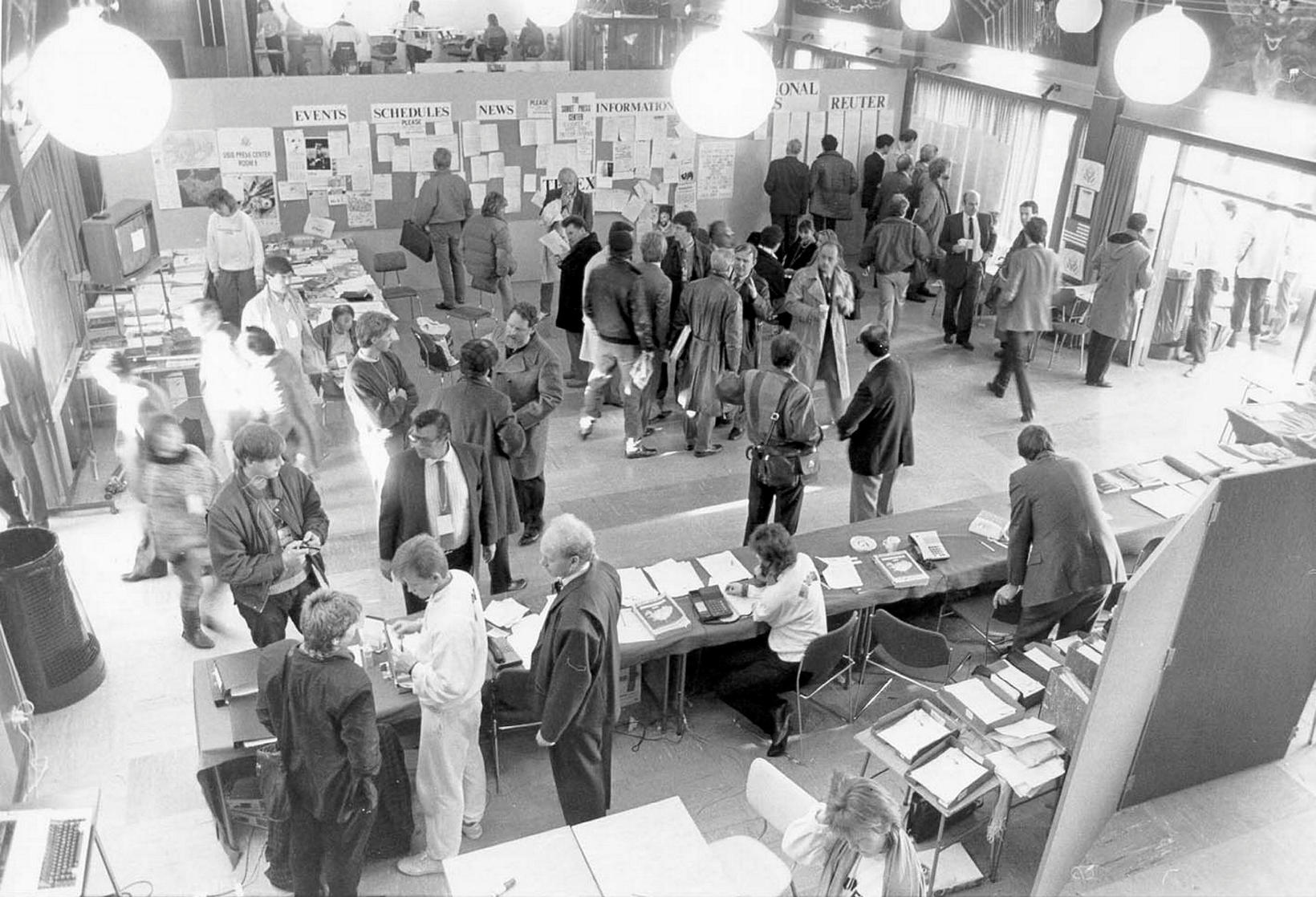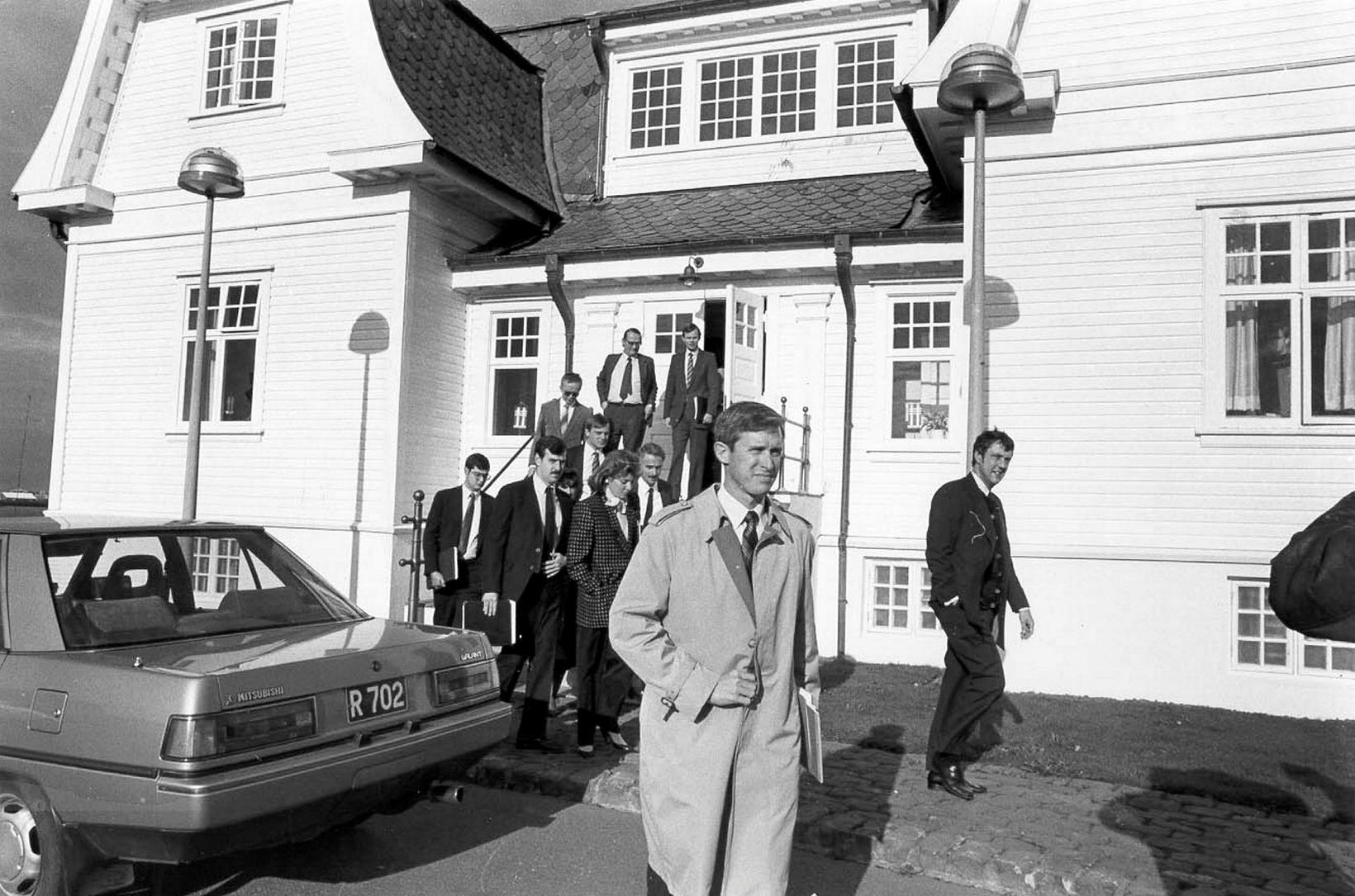The Reykjavik summit then and now
The Reykjavik Summit 1986 where the US President Ronald Reagan met with the Soviet leader Michail Gorbachev. The meeting was instrumental in ending the Cold War. Morgunblaðið/RAX
Preparations for the European Council Summit, which will take place tomorrow and Wednesday in Harpa are in place. The meeting is the largest to be held here since the Reykjavik Summit when US President Ronald Reagan and Soviet leader Mikhail Gorbachev met in Höfði in Reykjavik October 11-12 in 1986.
Comparing the Council Summit on Tuesday to the Reykjavik summit in 1986 is interesting. While the summit in 1986 was a meeting of two world leaders and the Council Summit this week is expected to host 50 world leaders, there are similarities between the two summits in regard to security issues and the impact on traffic is expected to be considerable during the week.
Massive security
Among the most important considerations at these events is security. The European Council Summit will have a considerable impact on the public. Streets around the building will be closed to vehicle traffic. However, it will be possible to go through the area on foot and by bike, but the area closest to Harpa will be closed to the public. Traffic delays in the whole capital area due to the driving of delegations can also be expected in the days of the meeting.
Reykjavik Summit 1986. Unarmed Icelandic rescue workers form a circle around Höfði while Reagan and Gorbachev were in the meeting. Morgunblaðið/Árni Sæberg
The preparations for the meeting in Höfði were also considerable, but all measures were taken on the demand of the security guards of the superpowers, as stated in Morgunblaðið on October 9, 1986. Temporary laws were passed on the rentals of properties surrounding Höfði, causing considerable problems for the owners, most of whom had rented it to the media before the meeting.
There were also restrictions on air traffic at both Keflavík and Reykjavík airports from the day before the meeting began, until the day after the meeting ended, except on the exemption. No air traffic was allowed an hour before and after the scheduled arrival and departure of the leaders.
At the same time, traffic in Reykjavík harbour area was restricted as much as possible. All ship traffic was prohibited between Engey and Laugarnes, as was recreational boat traffic through the old harbour and into Laugarnes. Two patrol vessels and a few boats were on guard, and ships had to report their location faster than usual.
Air traffic restrictions
Although it is clear that there will be a high level of preparedness around the Harpa Summit, the limitations on air traffic will not be the same as for the meeting in Höfði, according to Rósa Bjarkar Brynjólfsdóttir, director of international affairs at the Prime Ministry. Some restrictions can be assumed when the leaders and delegations both come and go, whether from Keflavík or Reykjavík airport. However, Brynjólfsdóttir says there will be no disruption to air traffic during the meeting.
In the same way, there will also be increased maritime patrols off Reykjavík. The patrol vessel Þór will be in security with the Coast Guard, which will be responsible for closely monitoring maritime traffic around the country with remote surveillance, satellite imagery and helicopters, according to Ásgeir Erlendsson, information officer of the Icelandic Coast Guard.
Hagaskóli became press venue
In the nearly 37 years since the Reykjavik Summit, much has changed, especially when it comes to technology. Technology may be a factor, as currently around 300-500 journalists are expected to come to Iceland, compared to the 3,200 media members who came here for the Reykjavik Summit, as former ambassador Helgi Ágústsson reported to the journalist.
Back in 1986, Ágústsson was called home to Iceland from his duties in Britain to manage an international news centre set up at Hagaskóli . This was because he had experience in communicating with foreign journalists for his work.
Total news ban in Höfði
With a total news blackout from the meeting, the focus was on geographical presentation. According to Ágústsson, work was underway at the news center to book interviews for the foreign media across town, introducing the country to the rest of the world.
The main concern at the time was whether the number of telephone lines would be sufficient out of the country, which was increased from 215 to about 400, excluding telephone lines for the White House press.
This time there won’t be a total news ban from the European Council Summit, but, according to Brynjólfsdóttir, there will be a live broadcast of the opening ceremony of the meeting and the main discussions.
Specialists with the leader delegations checking the area around the building. MorgunblaðiðÁrni Sæberg
The leaders with delegations
Although the Reagan and Gorbachev meeting in Höfði was restricted to the two leaders, the delegation was accompanied by some 400 people. By comparison, in the European Council Summit the leaders will be accompanied by some 500 people, including delegations. According to Brynjólfsdóttir, only eleven people are allowed in the delegations that will accompany the leaders to the meeting. Although it is possible that more people will follow each leader individually.
Short notice in 1986
Ágústsson, speaking to a reporter, recalls the short notice period for the hearings in Höfði. These were only confirmed two weeks in advance, but in the October 9, 1986, issue of Morgunblaðið, it was reported that the meeting would take place between October 11-12 and then a tremendous amount of work was underway to prepare. The paper also discussed Ronald Reagan’s historic announcement, which unexpectedly announced the meeting at the White House where key points in the Daniloff case were being discussed.
However, a summit has not been called in this country with such short notice since then. The formal decision to hold a European Council Summit here this May was announced on November 7, or about seven months in advance. The preparations, however, have been enormous, because it is not everyday that Iceland hosts a summit of world leaders of this size.











